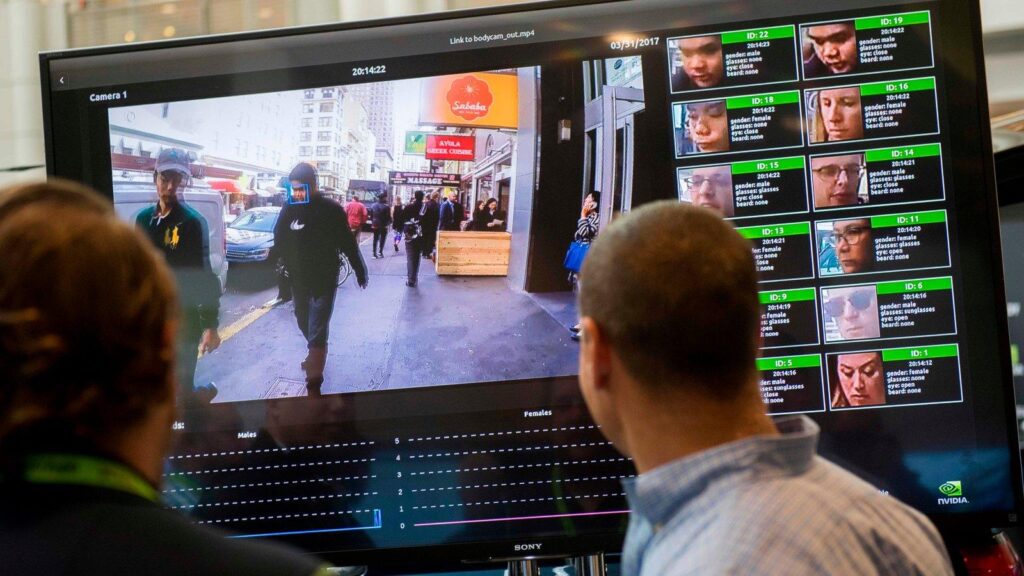NYPD’s Facial Recognition Technology Faces Heightened Investigation Amid Privacy and Civil Rights Concerns
Legal aid organizations are urging the New York City Inspector General to initiate a detailed inquiry into the New York Police Department’s deployment of facial recognition technology. This call comes amid escalating worries about privacy infringements and the potential for misuse of this powerful surveillance tool. Critics emphasize that without stringent oversight, the technology risks misidentifying innocent people, perpetuating bias, and undermining fundamental civil liberties. The demand for transparency and accountability has never been more urgent as the NYPD continues to expand its use of biometric surveillance.
The investigation is expected to focus on several critical areas:
- Reliability and error rates: Evaluating the frequency of false matches and their consequences on individuals wrongly targeted.
- Data management practices: Clarifying how long biometric data is retained, who can access it, and under what conditions.
- Public notification and consent: Addressing the lack of prior disclosure to communities before facial recognition is employed in public spaces.
| Focus Area | Current Situation | Advocate Concerns |
|---|---|---|
| Oversight | Minimal independent review | Calls for impartial audits and monitoring |
| Bias and Discrimination | Evidence of racial disparities | Potential for systemic profiling and injustice |
| Transparency | Limited public information | Demand for open communication and accountability |
Legal Aid Groups Demand Rigorous Inspector General Review of NYPD Facial Recognition Use
Legal aid advocates are intensifying their push for a comprehensive investigation into the NYPD’s facial recognition practices, highlighting serious concerns about privacy violations and opaque data handling procedures. The organizations stress the necessity of holding the department accountable to prevent misuse and protect the civil rights of New Yorkers.
Key elements they urge the Inspector General to scrutinize include:
- Disclosure of internal protocols governing the deployment of facial recognition systems.
- Security audits of biometric databases to assess vulnerabilities and unauthorized access risks.
- Analysis of error rates and the disproportionate impact on marginalized populations.
- Verification of compliance with existing legal standards and human rights frameworks.
| Issue | Concern | Recommended Action |
|---|---|---|
| Data Collection | Retention without clear authorization | Conduct a full audit of data storage and access |
| Algorithm Performance | High incidence of false positives | Implement independent validation and testing |
| Policy Transparency | Unclear operational guidelines | Mandate public disclosure of usage policies |
Examining Civil Rights Risks and Data Governance Challenges in NYPD’s Facial Recognition Use
Civil rights organizations have voiced serious apprehensions regarding the NYPD’s facial recognition technology, warning that its unchecked use could exacerbate racial profiling and infringe on privacy rights. Studies indicate that biometric surveillance tools often yield higher error rates for people of color, raising the specter of wrongful detentions and systemic discrimination. Advocates argue that without robust oversight, these technologies threaten to erode public confidence in law enforcement.
Additionally, the management of biometric data collected through facial recognition systems remains a critical concern. Experts highlight the NYPD’s vague policies on data consent, retention duration, and third-party sharing, which increase the risk of unauthorized use or breaches. The table below summarizes the primary areas of concern and proposed remedies:
| Concern Area | Potential Consequences | Suggested Measures |
|---|---|---|
| Data Accuracy | Mistaken identities leading to wrongful arrests | Mandatory independent accuracy assessments |
| Consent & Transparency | Violation of privacy due to lack of informed consent | Implement public reporting and opt-out options |
| Data Security | Exposure to data breaches and unauthorized access | Enhance encryption protocols and restrict access |
Strategies to Strengthen Transparency, Accountability, and Policy Reform
To mitigate risks associated with the NYPD’s facial recognition technology, experts advocate for the establishment of clear operational standards and routine independent audits. These steps are essential to ensure that data collection respects individual privacy and that algorithms function without bias or error. Increasing transparency through regular public disclosures about technology use and any data breaches will empower community oversight and foster trust.
Recommended policy reforms include:
- Mandatory transparency: The NYPD should publicly disclose when and how facial recognition is utilized.
- Community oversight committees: Create citizen-led boards to monitor and guide the ethical use of surveillance technologies.
- Legal protections: Enact legislation that clearly defines permissible uses and safeguards against abuse.
| Recommendation | Objective | Anticipated Benefit |
|---|---|---|
| Independent Audits | Verify compliance with privacy and accuracy standards | Decrease in wrongful identifications and arrests |
| Public Reporting | Enhance transparency and public oversight | Improved community trust and engagement |
| Legislative Reform | Establish clear legal boundaries for technology use | Stronger protections for civil liberties |
Conclusion: The Future of Facial Recognition Oversight in New York City
As pressure mounts from legal aid groups and civil rights advocates, the demand for a thorough Inspector General investigation into the NYPD’s facial recognition practices highlights the urgent need to balance public safety with privacy and equity. The department’s response will likely influence how surveillance technologies are regulated across the city and potentially nationwide. With public confidence at stake, the unfolding inquiry represents a pivotal moment in shaping ethical law enforcement in the digital era.













